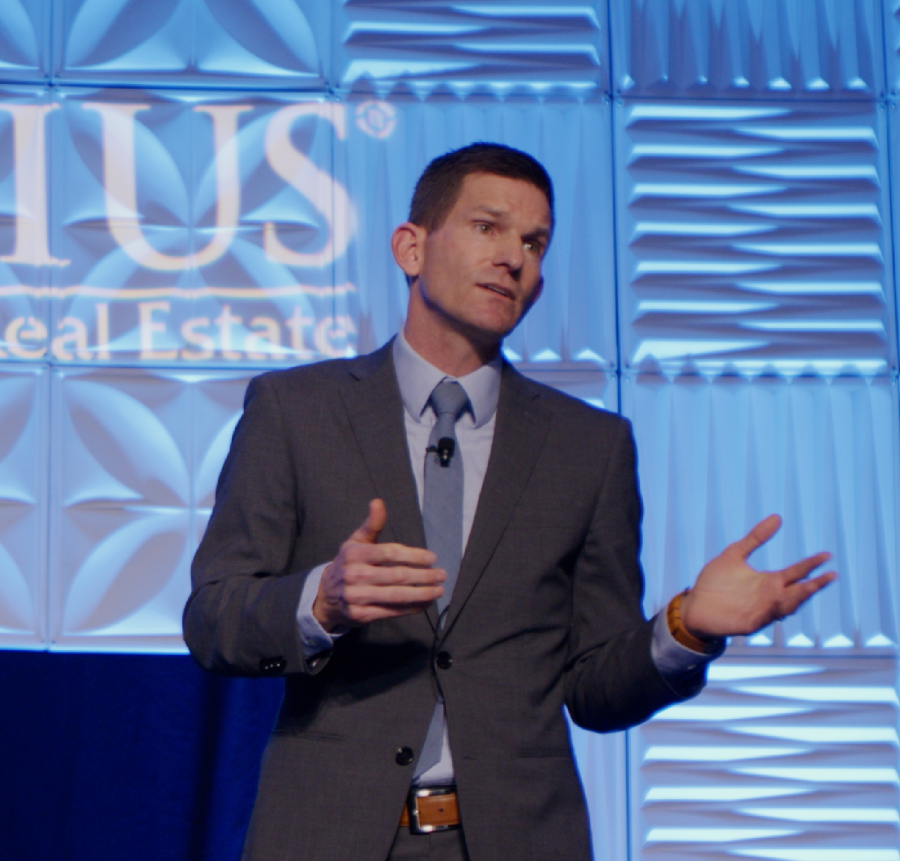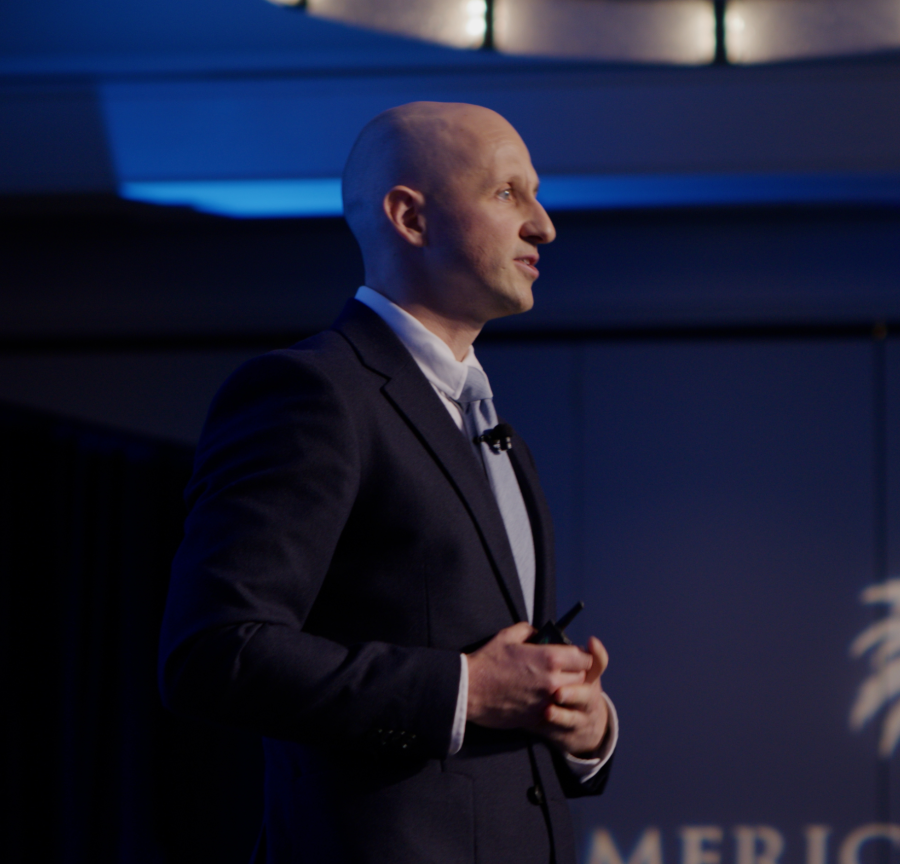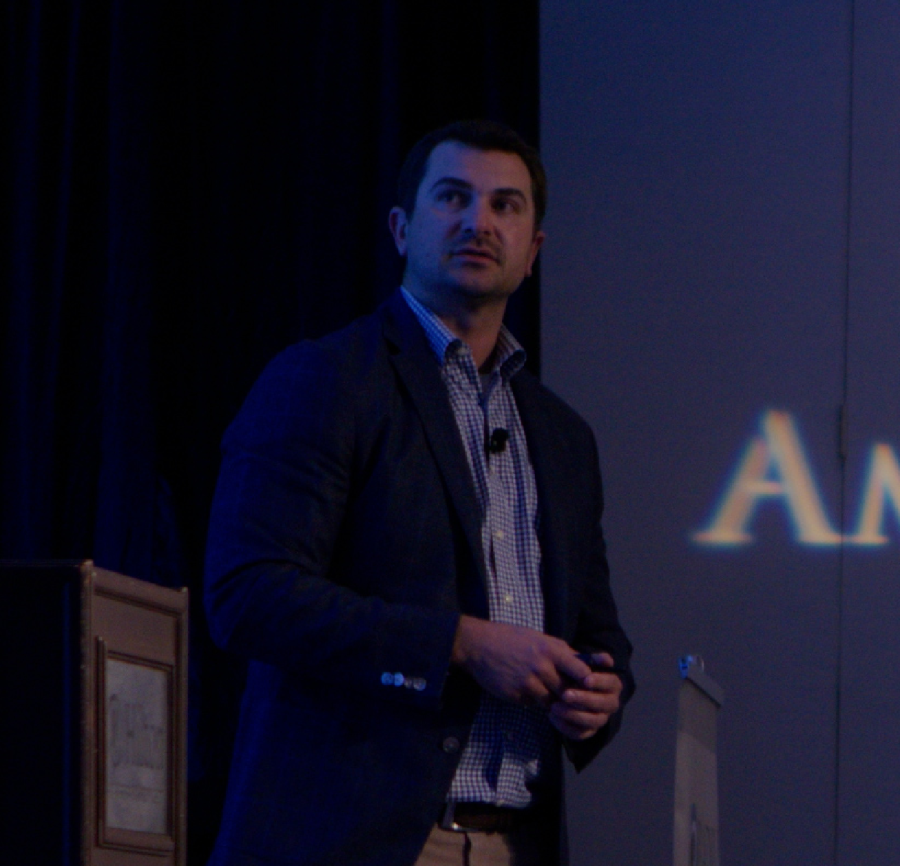

American Riviera Bank is pleased to have sponsored the recent Radius Real Estate & Economic Forecast event on March 12 at the Hilton Santa Barbara Beachfront Resort. The event provided valuable insights into the current market landscape. The Bank's commitment to the local real estate community was evident, with over 40 employees and esteemed clients in attendance, eager to gain knowledge from industry experts and engage in meaningful discussions about market trends and opportunities.
Principal, Radius
Gene Deering started off the conversation with the following insights from Goleta to Carpinteria, with the exception of Downtown Santa Barbara:

Senior Associate, Radius
Justin Diem picked up the conversation, focusing on Downtown, Santa Barbara:

Senior Vice President, Radius
Mike Lopez continued the presentation, highlighting Central Coast market activity, interest rates, and other trends:

Founding Partner, Beacon Economics
Contrary to prevailing pessimism, Dr. Chris Thornberg stated the American economy is showing remarkable resilience. Consumer spending, a key driver of economic growth, remains robust. Dr. Thornberg highlighted some supporting statistics: foreign travel is at an all-time high, restaurant sales have surged 50% above pre-pandemic levels, and luxury purchases are booming. Las Vegas, for instance, is experiencing unprecedented visitor numbers.

Even in the auto industry, while unit sales have slightly decreased, the average value per vehicle has skyrocketed from $65,000 pre-pandemic to over $80,000 today, adjusted for inflation. This shift indicates a trend towards higher-quality, more expensive vehicles, reflecting strong consumer confidence and spending power.
A central theme of the lecture was the stark contrast between economic data and public sentiment. Despite positive economic indicators, consumer confidence remains surprisingly low. Dr. Thornberg attributed this disconnect to the power of narratives in shaping public opinion, often overshadowing actual economic realities.
Dr. Thornberg passionately addressed the critical role of immigration in sustaining economic growth, particularly in light of declining birth rates. Over the past 20 years, more than a third of the 17 million workers added to the U.S. economy were born overseas. The lecture challenged the prevailing negative narratives around immigration, emphasizing its necessity for addressing labor shortages and supporting long-term fiscal stability, especially in funding programs like Medicare and Social Security.
A significant portion of the discussion focused on housing market issues, with particular emphasis on California. Dr. Thornberg argued that the state's housing affordability problem stems primarily from a supply shortage rather than demand issues. He presented compelling data showing that while Texas has seen significant population and labor force growth due to aggressive housing development, California's growth has stagnated due to restrictive building policies.
Dr. Thornberg advocated for policy changes to streamline housing development processes, citing examples like Sonoma County's rapid rebuilding efforts after the 2017 fires as a model for efficient, simplified permitting processes.
Dr. Thornberg expressed concern about the growing federal deficit, currently at 6% of GDP, with debt levels at 100% of GDP - levels not seen since World War II. He warned that this situation, combined with future obligations for Social Security and Medicare, could pose significant long-term risks to the economy.
Another point raised was the U.S.'s external imbalances, with the net investment position at -83% of GDP, the weakest it's ever been. Dr. Thornberg cautioned that while foreign investment in U.S. assets currently appears strong, a sudden shift in sentiment could lead to a rapid increase in interest rates and economic instability.
Dr. Thornberg concluded with a thought-provoking discussion on the paradox of misinformation in the information age. Despite unprecedented access to data, confirmation bias often leads people to seek information that aligns with their existing beliefs, perpetuating economic misconceptions. He challenged the audience to be more critical of the narratives they encounter and to base their understanding on substantive economic data.
While acknowledging potential headwinds, the forecast maintained a cautiously optimistic outlook. Dr. Thornberg emphasized the underlying strength of the U.S. economy and stressed the importance of addressing key issues like housing supply and immigration policy to sustain long-term economic health.
The comprehensive overview of the real estate market presented at this event underscores the dynamic nature of the industry. From evolving buyer behaviors to the resilience of local markets, the insights shared offer a wealth of information for industry professionals and investors alike. American Riviera Bank takes pride in its active role in shaping the future of real estate within the community.
The recent Radius Group Real Estate & Economic Forecast provided a compelling analysis of the current economic landscape, challenging prevailing narratives with supporting data.
As a trusted financial partner, American Riviera Bank stands ready to support local businesses and individuals with your real estate endeavors. Whether your focus is on commercial real estate opportunities or other loan products, our team of banking experts is available to provide personalized guidance and innovative financial solutions.
To discuss how American Riviera Bank can facilitate your real estate investment goals, reach out to start the conversation.
Member FDIC | NMLSR #808293
Photos courtesy of Radius